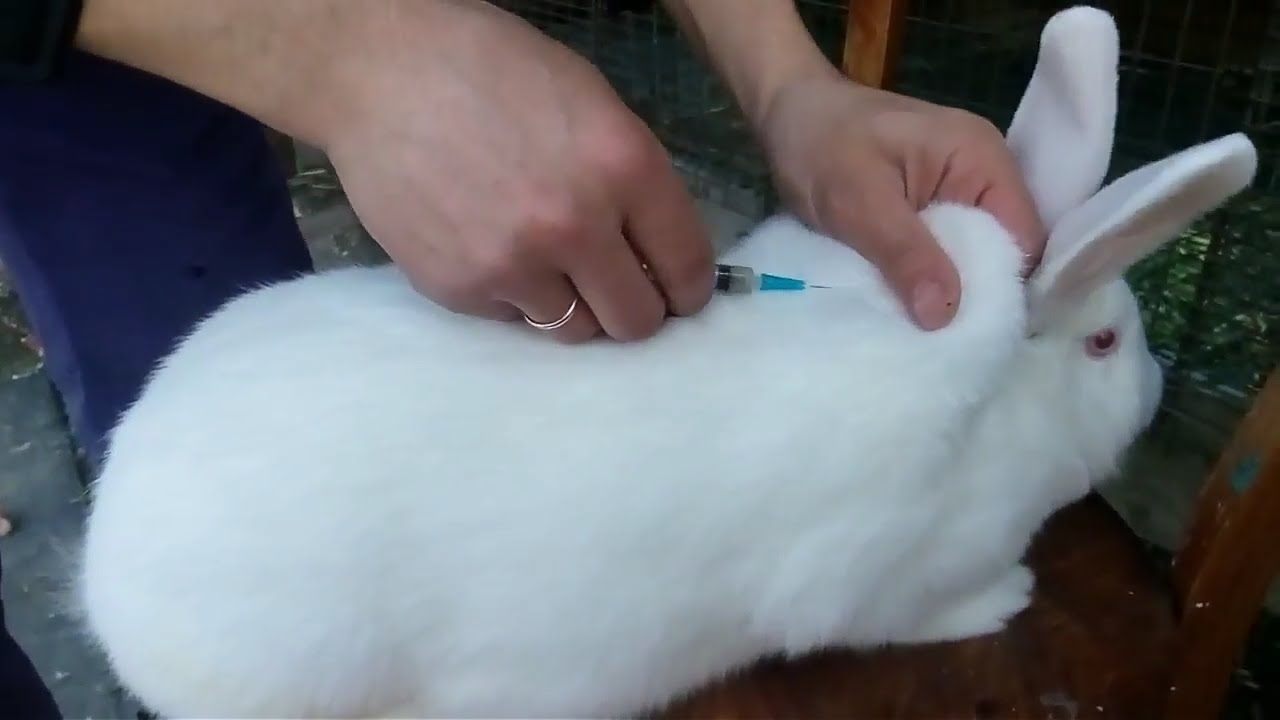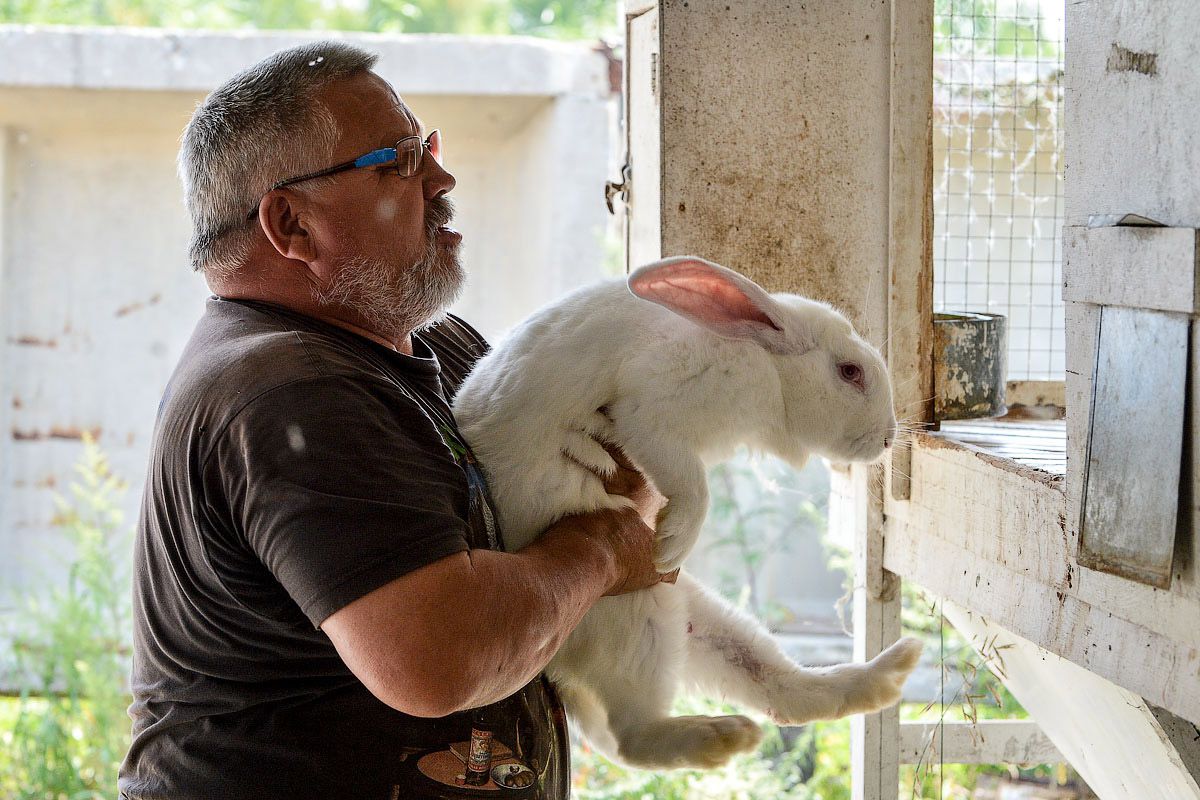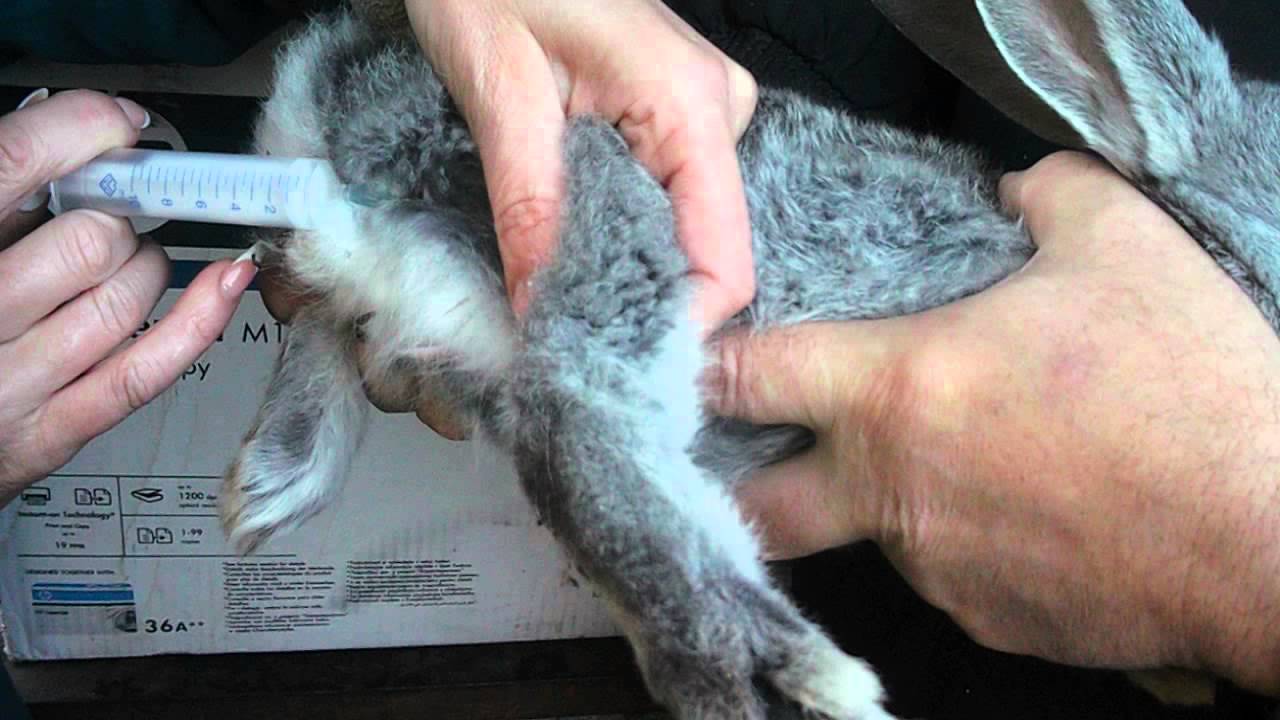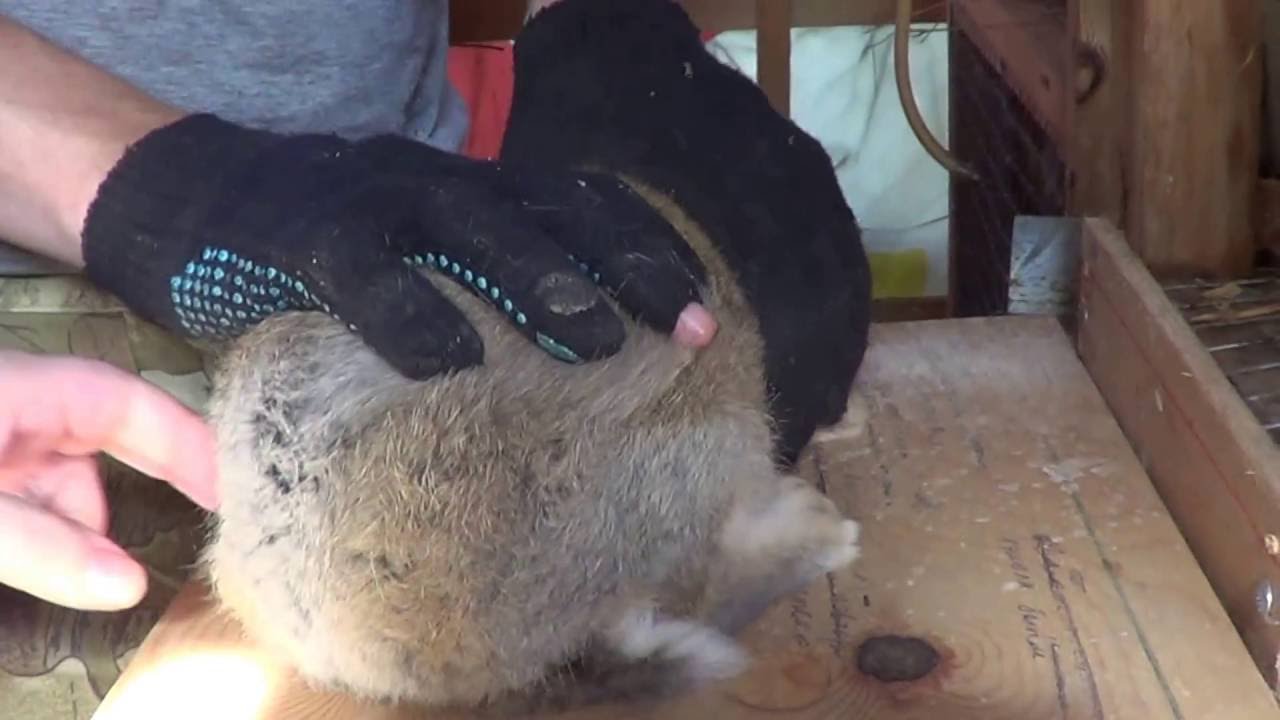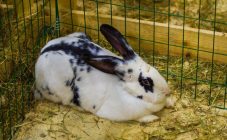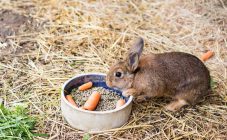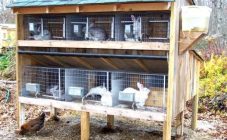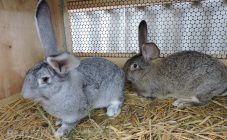Content:
Today, breeding rabbits at home is considered a very profitable activity. They do not require special care, are fertile, grow and develop rapidly, have dietary meat rich in vitamins. The only thing to be wary of is rabbit diseases. Rabbit breeding is not a difficult process, it is enough to have minimal knowledge of animal care.
What diseases vaccines
Rabbits, like other animals that are kept at home, need mandatory vaccination. This procedure will increase immunity, improve resistance to many infections and viruses. Even if the disease nevertheless struck single individuals, it will not turn into an epidemic and will not destroy all rabbits. At an early age, they are vaccinated against a disease called myxomatosis. In this disease, the lymphatic system is affected.
You can define it by the following symptoms:
- Lesions of the eyes and eyelids;
- Loss of coordination of movements;
- Increased body temperature;
- Enlarged lymph nodes behind the ears, in the neck;
- Formation of fibrous nodes.
Because the disease spreads very quickly, it is easier to prevent than to cure. Treatment does not always lead to full flock recovery. Vaccinations are done regularly, several times a year.
Viral hemorrhagic disease is also prevented by vaccination, since there is no cure for it. This disease affects the internal organs of the animal: the liver and lungs.
VGBK has the following symptoms:
- A sharp increase in body temperature;
- Apathy;
- Refusal to eat;
- Cardiopalmus;
- Frequent and loose stools, foamy.
When these symptoms occur, diseased individuals are placed in a quarantine zone so that the disease does not affect all livestock. Rabbits die 3 days after the first symptoms appear.
The unicellular parasites of coccidia cause the disease of the same name - coccidiosis. They affect the liver and gastrointestinal tract of the animal. Crawl organs affected by coccidiosis are not treated. He cannot fully assimilate food, vitamins are not processed by the body, the animal loses weight and soon dies.
The symptoms of the disease are:
- Stomach upset;
- Feces with foam and blood;
- A sharp rise in temperature;
- Refusal to eat;
- Mucous discharge from the eyes and nose;
- Wool falls out.
So that the disease does not take on a chronic nature or does not develop into an epidemic that will destroy all livestock, it is recommended to vaccinate rabbits. Coccidiosis is not fatal, in some cases it can be cured with medications, but the disease spreads very quickly, and if you do not notice symptoms in one sick animal in time, literally in 48 hours most of the herd will be sick.
Mandatory vaccinations
Veterinarians have rabbit vaccination schemes approved by the Main Associated Veterinary Directorate of the Cabinet of Ministers of the Russian Federation. With strict adherence to all terms of vaccinations, you can forget about many deadly diseases that are characteristic of rabbits. Vaccinations are done in a short time with minimal pain for the animal.
So, what and when to vaccinate rabbits will be prompted by two existing animal vaccination schemes:
- The first vaccination is given on the 45th day of birth and is repeated after three months. Subsequent vaccinations are given every six months throughout the rabbit's life.
- Vaccinations against myxomatosis and VGBK. The first vaccination is given at the age of 45 days for Viral Hemorrhagic Disease. The second is carried out not earlier than after 2 weeks, from myxomatosis, it is repeated after 3 months. After repeated vaccination against myxomatosis, the vaccination against VGBV is repeated within two weeks. Revaccination is carried out once every six months with a two-week difference between vaccinations, while the dosage of the drug changes along with changes in weight and age.
Preparing for vaccination
Even a novice farmer can vaccinate rabbits at home. Although it is recommended to vaccinate animals for the first time in the presence of a veterinarian. You should also carefully study the instructions for the drugs that will be vaccinated. Animals must be prepared for vaccination. To do this, a few weeks before the intended vaccination, it is necessary to carry out prophylaxis against helminths. The day before the administration of the drug, it is recommended to keep the temperature under control. Temperature is measured by inserting a thermometer into the anus. The normal range is 38.5 ° C to 39.5 ° C.
The instructions for the vaccine for rabbits against myxomatosis and HBV describe cases of allergic reactions, therefore, when vaccinating rabbits at home, antiallergic drugs should be in the first-aid kit. The urine and feces of the animal must be free of foreign matter, of normal color, in case of deviation from the norms, vaccination is tolerated.
Rabbit vaccinations are available from veterinary pharmacies.
Care after vaccination
A rabbit recently injected with a vaccine begins to develop immunity to protect against a specific disease. In relation to other diseases, immunity weakens. Accordingly, everything possible should be done to ensure that in the next 1.5 months. the rabbit did not catch the virus on the street or did not get infected from other animals. It is advisable to move the vaccinated rabbits to the quarantine zone. It is not recommended to let the rabbit go outside and bathe. It should be protected from communication with other animals that have not yet passed the vaccination or revaccination stage.
When symptoms such as are found in recently vaccinated rabbits:
- weakness;
- loss of coordination;
- increased salivation;
- tearing.
animals should be given antihistamines and their behavior monitored. If lethargy and apathy persist, you should consult a veterinarian. Rabbits are thirsty after vaccinations. If the diet can be left unchanged, then the amount of fluid consumed should be increased.
Vaccinations during pregnancy and lactation
Any vaccination is allowed for pregnant rabbits. The baby rabbit will receive the necessary immunity along with the mother's milk, but it will be temporary. Only lactating rabbits are not allowed to be vaccinated, since that infection or virus that enters the body of the rabbit during lactation gets along with the milk to the young. Their immunity is still too weak to withstand such serious diseases, even in mild forms. Only with the threat of an epidemic can a rabbit be vaccinated after birth. Then the risk of losing all livestock is reduced.
During the period of bearing offspring, rabbits are recommended to select complex preparations for vaccination. The vaccination must be done by a veterinarian. In the next few days, the condition of pregnant rabbits should be kept under special control. For any side effects, you need to consult a specialist.
It is advisable to vaccinate rabbits before pregnancy. Because it is not known how a rabbit will transfer an infection or a virus into the body. An allergic reaction is possible. For the birth of healthy offspring, you should not risk the constant use of drugs. After vaccination, hold for about two weeks and only then mate.
Complex vaccines
Rabbit vaccines are divided into complex and monovaccines. Monovaccine is a one-component preparation containing serum from one disease. The complex vaccine contains sera from several diseases. In turn, complex ones are also divided into those that contain serum from two diseases, and polyvalent - from 3 or more diseases. New generation vaccines do not imply a deterioration in the health of animals, due to a strong decrease in immunity to strains that are injected. Accordingly, rabbits tolerate the vaccination period quite well. At the same time, complex vaccination is good because you do not need to inject the animal several times over a short time. Financially, multivalent vaccines are more beneficial than multiple monovalent vaccines.
Composite vaccines can be divided into two types:
- Alive. When rabbits are vaccinated with live vaccines, immunity to diseases is developed faster, but the rabbit also reacts more strongly to a live vaccine. Live vaccines contain attenuated viruses. It is they who form stable immunity in animals to specific diseases.
- Inactivated. Viruses or infections that are introduced as part of inactivated vaccines contain dead microorganisms - pathogens. The rabbit reacts weaker to such vaccinations than to live ones. Immunity is developed for a shorter time.
The most popular bivalent complex vaccines for rabbits are:
- A Russian-made drug called "Rabbiwak V". Manufactured in the village of Don, which is located in the Lipetsk region;
- Pistorin Mormyx, manufacturer - Czech Republic;
- Nobivak Myxo-RHD - Netherlands.
When using these drugs, you should strictly adhere to the mechanism of action indicated in the instructions.
Rabbit vaccine is available from certified point of sale only. If you use vaccines with a poor shelf life or improper storage conditions, there is a risk of serious harm to the health of the animal, with possible death.
Vaccinations at home
Rabbits are vaccinated by a veterinarian. If a rabbit of an ornamental breed is kept at home, it is taken to a veterinary clinic, where the animal is vaccinated. A decorative rabbit receives the same grafts as a rabbit that is grown for industrial purposes. Vaccination of a decorative rabbit will save the animal from common rabbit ailments. Vaccinations for dwarf rabbits are carried out in the same way. In the event that a large number of rabbits are kept at home, which are raised in order to profit from meat, wool, skins, a veterinarian is called at home. Rabbits can be vaccinated on their own, with minimal experience and dexterity.
In order to vaccinate rabbits at home on your own, you should act according to a certain scheme:
- Check the livestock for diseases;
- Exclude helminths in rabbits requiring vaccination;
- Before injection, carefully study the instructions for the drug;
- Select the dose necessary for the animal, based on the weight and age of the rabbit;
- If the vaccine was purchased in the form of a dry powder, it should be diluted with clean, distilled water, in the ratio indicated in the instructions;
- When injecting, it is recommended to use either a disposable insulin syringe or an automatic syringe;
- In the room in which the injections are carried out, the air temperature should be within 25 ° C. Otherwise, rabbits may react poorly to temperature conditions, which will entail side effects from vaccination;
Injections are given in the ear, withers, or hip muscle. Doctors recommend injecting the drug intramuscularly, since in this way the vaccine manifests its effect faster. The injection site is treated with an alcohol solution before and after the injection.
Vaccinating rabbits is not a complete guarantee that the animals will not get sick. But this significantly reduces the risk of an epidemic and death of the entire livestock.
